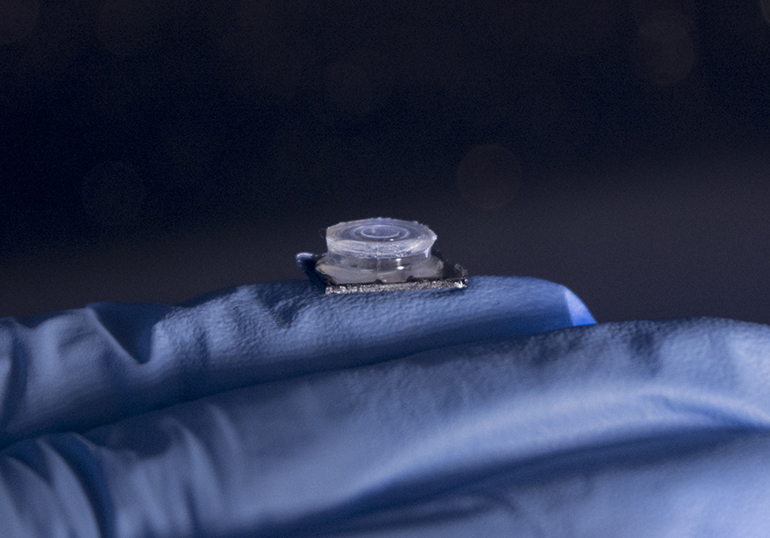Researchers at Imperial College London have developed a tiny lab-on-a-chip that can perform PCR diagnostics in just a few minutes. Usually requiring bulky and expensive lab equipment, PCR is a gold standard diagnostic test for a variety of infectious pathogens, including bacteria and viruses, such as SARS-CoV-2. The new testing device is 1 cm in diameter and could help to expand diagnostics into remote or low-resource regions.
Slow diagnostic testing causes a variety of problems for patients with infectious diseases, including delays inappropriate treatment and longer hospital stays and recovery times. During the ongoing COVID-19 pandemic, rapid tests would help people to determine whether they’re infected as soon as possible and might allow everyday activities to recommence in many circumstances. For low-resource or remote regions, the need for rapid and mobile testing technology is even more stark, as there may not be a hospital lab within a convenient distance.
“Rather than sending swabs to the lab or going to a clinic, the lab could come to you on a fingernail-sized chip,” said Firat Guder, a researcher involved in the study, in a press release. “You would use the test much like how people with diabetes use blood sugar tests, by providing a sample and waiting for results – except this time it’s for infectious diseases.”
The researchers have made the device using silicon. Typically, such miniaturized silicon technology would require cleanroom manufacturing conditions, such as those used to create computer chips, making it difficult and expensive to produce. However, this latest device has been designed so that it can be created under standard laboratory conditions, which helps to reduce costs and increase accessibility to the technology.
The chip contains temperature sensors, a heater, and a DNA sensor. So far, the researchers have tested the device’s ability to detect a bacterial infection that normally occurs in animals and genetic material that occurs in the SARS-CoV-2 virus, suggesting that the technology has potential as a point-of-care COVID-19 test.














